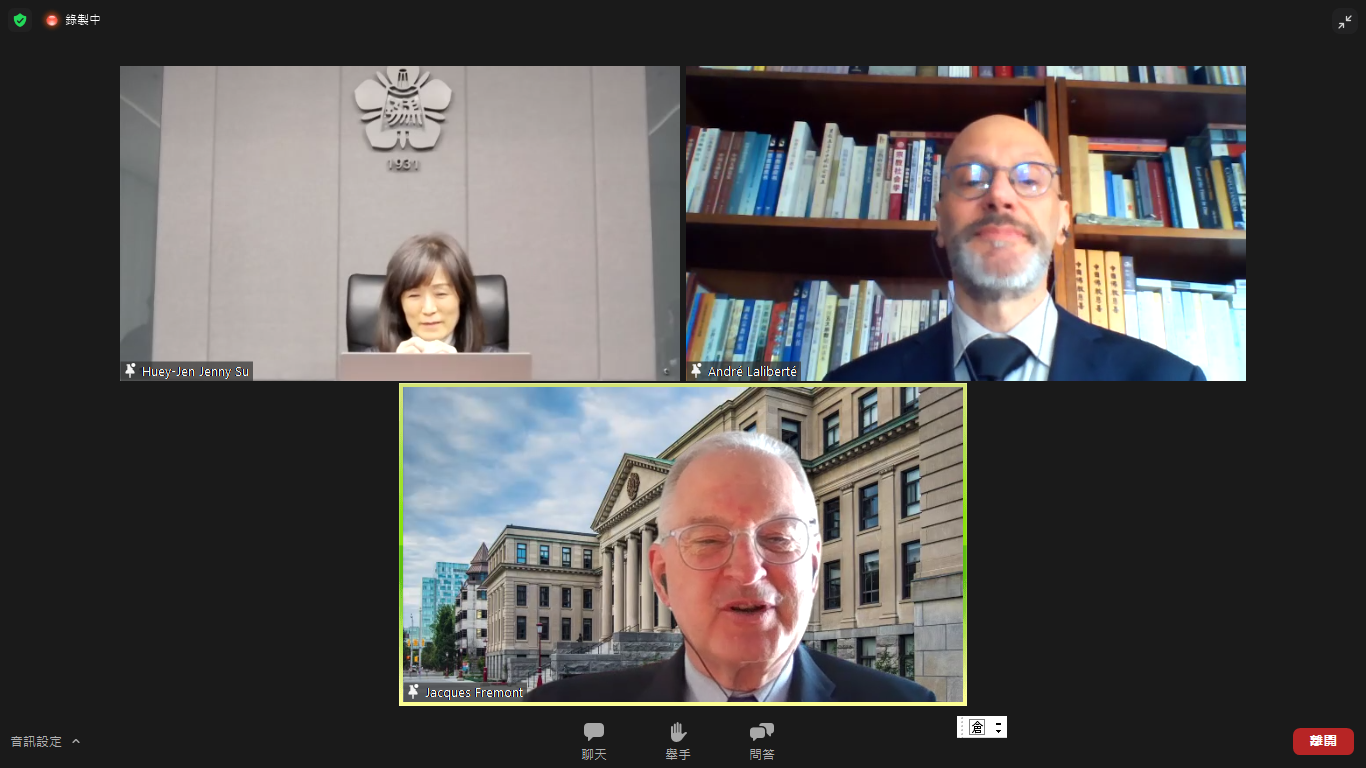Webinar on COVID-19’s Impacts on the Landscape of Taiwan and International Higher Education

The Centre for International Policy Studies and Research Chair in Taiwan Studies at the University of Ottawa held a webinar on March 22 entitled COVID-19’s Impacts on the Landscape of Taiwan and International Higher Education. It was hosted by the holder of the Research Chair in Taiwan Studies, Prof. André Laliberté, from the School of Political Studies. It was open to the general public and more than 30 people participated, most of whom were scholars and students at the university. The key speaker was Dr. Huey-Jen Jenny Su, president of National Cheng Kung University and the first female president in its 65-year history.
Mr. Jacques Frémont, the president and vice-chancellor of the University of Ottawa, and Prof. Laliberté made opening remarks. Mr. Frémont said that the collaboration between his university and National Cheng Kung University in Tainan City had strengthened since 2018, when he made an official visit there. A few months later a research team led by Dr. Sylvain Charbonneau, the Vice President Research visited Tainan to discuss further partnerships between the two universities.
Dr. Su then spoke about how higher education was impacted by the COVID-19 pandemic, her own university’s experiences, and how Taiwan dealt with COVID-19, particularly during the early stage. She presented statistics from before and after the outbreak of the pandemic as part of her analysis of the impacts on higher education. The threat of the pandemic led to distance learning being widely required more than ever before but she pointed out that this had raised concerns about the security of networks, for example when selecting virtual meeting platforms.
During the winter vacation in Taiwan, National Cheng Kung University continued working with the government to help accommodate international students. In answer to a question, she explained that to ensure on-campus safety, the university requires that all inbound and returning students undergo 14 days of Home Quarantine, followed by a further seven days of self-health management. This is in addition to the other preventive measures of maintaining social distance, and mask-wearing.
She emphasized the importance of each individual doing their duty to strengthen prevention of community spread during this critical time. But she added that apart from awarding degrees and diplomas, helping students cope mentally was one of the challenges universities had to face in response to the COVID-19 outbreak.